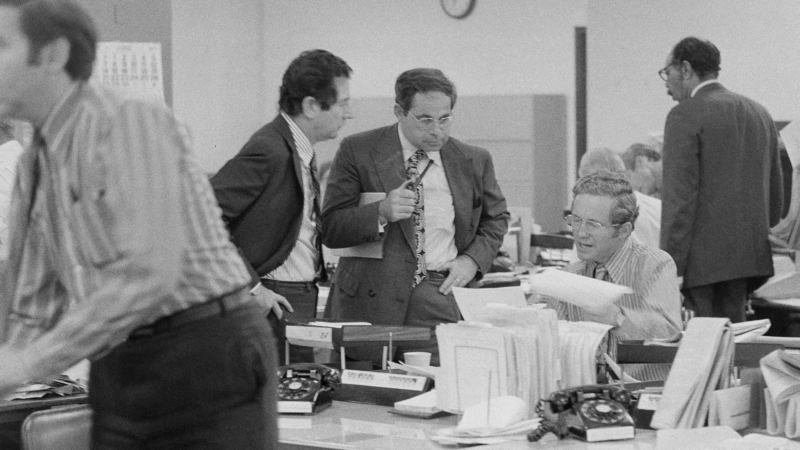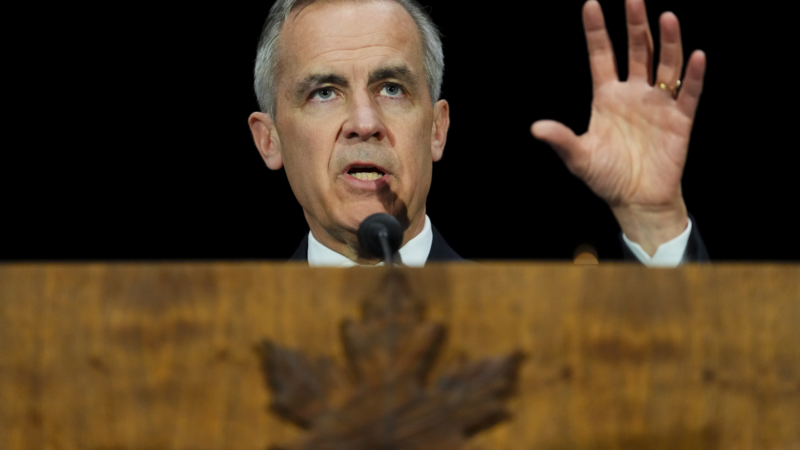New Book From NPR’s Guy Raz Draws Lessons From Entrepreneurs
Imagine this. You’re an NPR host with accolades for years of overseas reporting. You set that aside to develop podcasts, an emerging, untested, under-the-radar form of media. That’s what happened to NPR’s Guy Raz when he left Weekend All Things Considered in 2012.
Since then, Raz has created five podcasts and a business to support them, including “How I Built This.” In it, Raz interviewed entrepreneurs about the struggles and successes that led them to where they are today. This month, he released the book “How I Built This” based on the podcast. Tuesday he’ll take part in a virtual book event sponsored by Birmingham-based Books-A-Million.
Raz said he’s always had an entrepreneurial “itch” so this change in career was perhaps not surprising. Part of that comes from his parents, who left stable careers to open a jewelry store. Plus, practicing journalism and building a business have some things in common.
“To be a reporter requires all kinds of entrepreneurial skills and experiences like constant failure,” Raz said. “Being a reporter means knocking on doors and hearing people say, ‘no, I don’t want to talk to you. I’m not interested.”
It took ingenuity, in Raz’s case as a reporter, to fly into eastern Turkey, hire a driver and interpreter, find people to interview, and quickly put a story on the air. To him, there’s little difference between the work he did in a newsroom and the work he does now as a podcast host. He wants to find personal stories.
“We learn from people’s experiences, from their narratives, from their journeys, their triumphs and their failures,” Raz said. “The moments when they’re lying on the bathroom floor crying in the fetal position, that’s when we learn about how to conduct our own lives.”
Business leaders often have carefully crafted public images, but Raz often drew out difficult moments from his interviewees. Guests on “How I Built This” must agree to no preconditions meaning virtually everything is fair game. He also looked for ways to connect.
“When you can figure out how to connect with somebody quickly, they are naturally more willing to open up and tell you about the things in their lives that they’re not always comfortable doing,” Raz said.
Raz has interviewed hundreds of business leaders. About half are women or people of color. He said most investment money still goes to white and Asian men, although funders increasingly seek out entrepreneurs who haven’t historically had a seat at the table.
“It’s changing and it’s changing quickly, which I think is pretty encouraging,” Raz said.
The biggest challenge now is the coronavirus pandemic. Raz said businesses are having to make radical changes, taking “huge swings” to build resilience within their organizations. The pandemic accelerated change, too.
“Founders and business leaders are taking risks that would have taken them 18 months to two years to implement and they’re implementing these changes now in just a matter of weeks,” Raz said.
For all the celebration of entrepreneurship, there’s arguably a downside. Walmart or Starbucks represent success stories, but sometimes at the expense of a mom-and-pop shops that can’t survive. Raz said there’s some truth to that, but there’s another way to look at it. In the case of Starbucks, the coffee chain popularized coffee consumption, greatly expanding the market for the drink.
“There’s no question that probably Starbucks has crowded out some coffee shops around the country,” Raz said. “It’s also been part of a huge boom in coffee stores around the country.”
Businesses and podcasters have plenty of numbers to tout their successes, whether that’s through earnings or downloads, but for Guy Raz, success comes in a low-key way, if a bit cliché, as he puts it: his role as a father and a husband.
“I’m more interested in having a personally fulfilled life and a strong relationship with my family,” Raz said. “That’s pretty much my only measure.”
Max Frankel, former New York Times top editor, dies at 94
Frankel was The New York Times' executive editor from 1986 to 1994. He remained with the newspaper for nearly half a century, ushering it through different eras.
Venezuela says it will start accepting repatriation flights from the U.S. again
Venezuelan President Nicolás Maduro has called for the return of the Venezuelan migrants sent by the U.S. to El Salvador, where President Nayib Bukele said they were transferred to a mega-prison.
Canadian Prime Minister Mark Carney and opponent kick off their election campaigns
Trump's frequent attacks on Canada's sovereignty have infuriated Canadians and led to a surge in Canadian nationalism that has bolstered Liberal poll numbers.
Pope Francis makes first public appearance ahead of hospital discharge
The Pontiff's expected discharge comes after a five-week hospitalization for a severe respiratory infection.
Palestinian deaths in Gaza rise above 50,000 as Israel expands its military campaign
The death toll reached the milestone just days after Israel resumed its military campaign in Gaza, breaking a ceasefire with Hamas.
As Ovechkin nears the NHL goals record, the hockey world leans in to savor the moment
For years, Wayne Gretzky's record of 894 career regular-season goals was widely thought to be untouchable. Now, the Washington Capitals star has just a handful to go to claim the record as his own.








